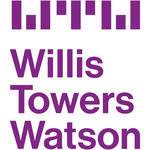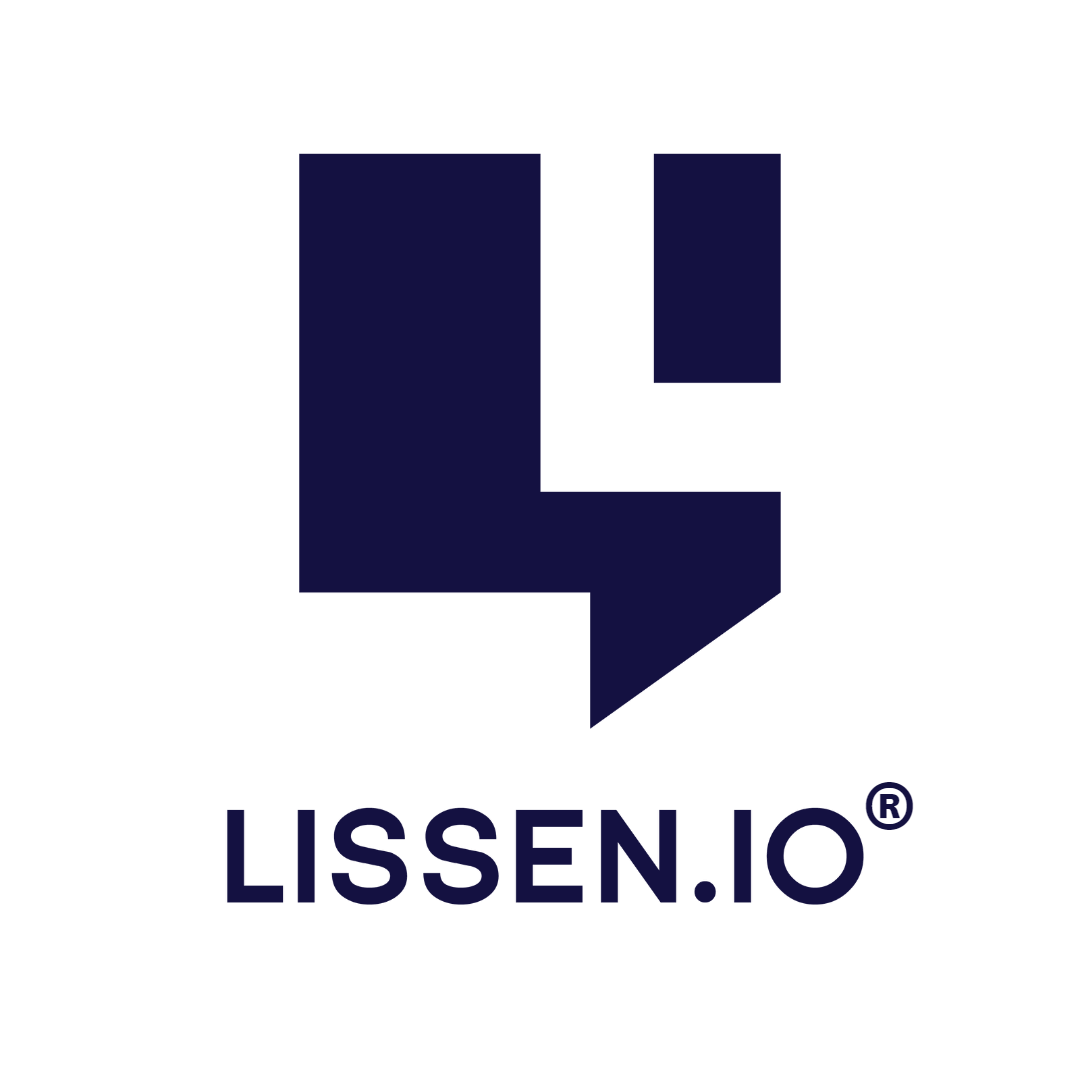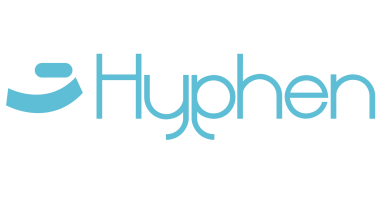Description

Deed

Willis Towers Watson Employee Engagement
Comprehensive Overview: Deed vs Willis Towers Watson Employee Engagement
To provide a comprehensive overview of Deed and Willis Towers Watson Employee Engagement (now part of WTW following a rebranding), let's break down each aspect as requested.
a) Primary Functions and Target Markets
Deed:
- Primary Functions: Deed is a platform aimed at enhancing employee engagement through corporate social responsibility (CSR). It provides tools for volunteering, donations, and social impact initiatives. Deed is designed to foster a sense of community and purpose within organizations by enabling employees to participate in meaningful activities.
- Target Markets: Deed targets medium to large enterprises seeking to strengthen their CSR programs and improve overall employee morale and engagement. It appeals particularly to companies with a strong emphasis on social impact and community involvement.
Willis Towers Watson (WTW) Employee Engagement:
- Primary Functions: WTW offers a suite of employee engagement solutions including surveys, analytics, and consulting services. These tools help organizations measure and improve employee engagement, adapt to workforce changes, and enhance organizational performance through data-driven insights.
- Target Markets: WTW's employee engagement solutions are targeted at diverse sectors ranging from small businesses to large enterprises. Their primary market includes organizations aiming to enhance productivity and retain top talents through improved employee satisfaction and engagement strategies.
b) Market Share and User Base
It is challenging to provide specific market share and user base statistics without access to the latest proprietary market research data. Below is a general comparison based on publicly available information and industry tendencies:
-
Deed: As a niche player focused on CSR and social impact within employee engagement, Deed might have a smaller market share compared to comprehensive employee engagement platforms. Its user base largely consists of companies deeply committed to corporate responsibility.
-
WTW Employee Engagement: WTW is a major player in the employee engagement field, benefiting from a broader suite of HR and consultancy services that attract a diverse clientele. This likely provides them with a larger overall market share and user base compared to niche platforms like Deed.
c) Key Differentiating Factors
Deed:
- Focuses primarily on CSR and social impact, making it ideal for companies that prioritize community engagement as a core part of their corporate culture.
- Offers a simple and intuitive platform that promotes employee-driven initiatives, enabling employees to directly participate in volunteering and philanthropic activities.
WTW Employee Engagement:
- Provides a comprehensive range of tools and services that support different aspects of employee engagement beyond CSR, including analytics, surveys, and strategic HR consulting.
- Leverages in-depth analytics to provide actionable insights and benchmarks, offering a data-driven approach to enhancing employee engagement and organization-wide performance.
- Benefits from WTW's extensive consulting expertise and global presence, making it a strong choice for companies seeking integrated HR solutions.
In summary, Deed is specialized in CSR-driven engagement, whereas WTW provides a broader, data-rich engagement platform with consultancy services. The choice between these products would largely depend on an organization’s priorities—whether they're more focused on social impact or comprehensive employee engagement strategies.
Contact Info

Year founded :
2020
Not Available
Not Available
Iran
Not Available

Year founded :
Not Available
Not Available
Not Available
Not Available
Not Available
Feature Similarity Breakdown: Deed, Willis Towers Watson Employee Engagement
To provide a comprehensive feature similarity breakdown for Deed and the Willis Towers Watson Employee Engagement platform, it's important to first recognize that both solutions are used for enhancing employee engagement and managing workplace culture, though they might approach these goals differently. Here’s a structured breakdown:
a) Core Features in Common
-
Employee Engagement Surveys:
- Both platforms likely offer tools to create and distribute surveys that assess employee satisfaction and engagement levels.
-
Analytics and Reporting:
- They provide data analysis features to interpret survey results, offering insights into employee engagement and satisfaction metrics.
-
Feedback Mechanisms:
- Each platform probably includes ways for employees to provide feedback beyond structured surveys, such as through direct feedback channels or suggestion boxes.
-
Dashboards:
- User-friendly dashboards for HR and management to visualize engagement levels and monitor trends over time.
-
Integration Capabilities:
- Both solutions are likely to integrate with other HR and enterprise systems to ensure seamless data flow and comprehensive insights.
b) User Interface Comparison
-
Deed:
- Deed is known for having a user-friendly, intuitive interface that's designed to be engaging and easy to navigate. It places a strong emphasis on community engagement features, which may be reflected in its UI with sections dedicated to volunteering, donations, and employee-led initiatives.
-
Willis Towers Watson Employee Engagement:
- This platform might feature a more data-driven interface that focuses on analytics and insights. The design can be more formal, reflecting its enterprise focus, with detailed reports and dashboards prioritizing data visibility and clarity.
c) Unique Features
-
Deed:
- Volunteering and Donation Portals: Unique features for managing corporate social responsibility (CSR) initiatives might set Deed apart. It often includes modules for organizing volunteer events and enabling employees to support charities directly through the platform.
- Community Building Tools: There could be emphasis on community and social features which align with fostering engagement through social impact.
-
Willis Towers Watson Employee Engagement:
- Advanced Data Analytics: As part of a large consultancy firm, Willis Towers Watson may leverage advanced analytics and AI to provide predictive insights and more tailored recommendations.
- Benchmarking: Likely to offer benchmarking capabilities against industry standards or similar companies, providing context for an organization's engagement metrics.
- Consulting Services: Unique access to consulting expertise to help implement engagement strategies and interpret complex data.
In conclusion, while both platforms aim to enhance employee engagement, Deed might focus more on the social and community aspects, integrating CSR directly into its engagement strategy. Willis Towers Watson, meanwhile, emphasizes rigorous data analysis and strategic consulting, catering to organizations looking for in-depth insight and industry comparisons. These differences reflect in their unique features and UI designs, aligning with their respective approaches to engagement.
Features

Efficient Task Management
Team Collaboration
User-Friendly Dashboard

Action Planning
Employee Surveys
Engagement Insights
Best Fit Use Cases: Deed, Willis Towers Watson Employee Engagement
Deed and Willis Towers Watson Employee Engagement are tools that cater to different needs within the realm of employee engagement, with each excelling in various scenarios based on company size, industry, and specific requirements.
Deed
a) Best Fit for Businesses or Projects:
- Socially Responsible Companies: Deed is particularly well-suited for organizations focused on corporate social responsibility (CSR) and employee volunteering. It provides a platform for employees to engage in volunteering and social impact projects.
- Small to Medium Enterprises (SMEs) and Non-profits: These entities often have a strong focus on community engagement and values-driven initiatives, making Deed a suitable choice.
- Startups and Tech Companies: Companies that promote a modern and socially conscious culture may find Deed appealing for fostering engagement through socially impactful projects.
c) Industry Verticals and Company Sizes:
- Non-profit Sector: Emphasizing volunteerism and social impact.
- Technology and Creative Industries: Where company culture often values innovation and social responsibility.
- Corporate Social Responsibility (CSR) Initiatives: For larger corporations looking to enhance their CSR efforts.
Willis Towers Watson Employee Engagement
b) Preferred Scenarios:
- Large-Scale Enterprises: Willis Towers Watson's solutions are robust and tailored to meet the sophisticated needs of large companies with diverse and widespread operations.
- Companies Focused on Data-Driven Insights: Organizations that require in-depth analytics and insights into employee engagement will benefit from the data-driven approach of Willis Towers Watson.
- Strategic HR Improvements: This tool is ideal for organizations looking to align their engagement strategies with business outcomes and improve overall HR practices.
d) Industry Verticals and Company Sizes:
- Financial Services and Insurance: Industries often requiring rigorous data analysis and large-scale employee feedback mechanisms.
- Global Corporations: With diverse and distributed workforces needing consolidated and insightful engagement analysis.
- Healthcare or Manufacturing: Companies where employee engagement directly impacts operational efficiency and quality of service or product.
In summary, Deed is best for organizations emphasizing social impact and engagement through volunteering, often smaller or with a CSR focus. In contrast, Willis Towers Watson is suited for large, data-driven enterprises across various industries seeking strategic improvements in employee engagement.
Pricing

Pricing Not Available

Pricing Not Available
Metrics History
Metrics History
Comparing undefined across companies
Conclusion & Final Verdict: Deed vs Willis Towers Watson Employee Engagement
When comparing Deed and Willis Towers Watson Employee Engagement, it is important to assess which product offers the most value based on the specific context and needs of an organization. Both tools are designed to enhance employee engagement but differ in terms of features, focus areas, and user experience.
Conclusion and Final Verdict
a) Considering all factors, which product offers the best overall value?
The best overall value is subjective and depends on an organization's specific needs and priorities. Deed might offer better value for companies focused on social impact and mission-driven engagement, while Willis Towers Watson will likely provide more value for organizations seeking in-depth analytics and comprehensive engagement strategies.
b) Pros and Cons of Each Product
Deed:
- Pros:
- Strong focus on social impact and corporate social responsibility (CSR).
- User-friendly interface for facilitating volunteer opportunities and donations.
- Encourages a culture of giving and purpose-driven work.
- Cons:
- Limited in-depth analytics compared to some other engagement platforms.
- May lack some traditional HR engagement metrics and tools.
Willis Towers Watson Employee Engagement:
- Pros:
- Comprehensive engagement framework with analytics and benchmarks.
- Strong focus on surveying employee sentiment and providing actionable insights.
- Tailored solutions for various industries and organizational sizes.
- Cons:
- Can be more complex to implement due to its extensive features.
- May require more resources to fully utilize all functionalities.
c) Recommendations for Users Trying to Decide Between Deed vs Willis Towers Watson Employee Engagement
-
Identify Priorities:
- If your organization values CSR and social impact alongside engagement, Deed might be the better option.
- If you need robust analytics and a comprehensive approach to employee engagement, consider Willis Towers Watson.
-
Assess Resource Availability:
- Evaluate your organization's capacity to implement and maintain the platform. Willis Towers Watson might require more investment in training and management resources.
-
Consider Employee Culture:
- Consider the predominant culture within your organization. If your employees are highly motivated by social causes, Deed could enhance engagement by aligning with these values.
-
Cost vs. Benefit Analysis:
- Conduct a detailed cost-benefit analysis. Consider not only the cost of the software but also the potential return on investment in terms of improved engagement and productivity.
Ultimately, the choice should be guided by the specific goals, cultural fit, and operational capacity of your organization. Both tools have their unique strengths and can significantly enhance engagement when aligned with organizational priorities.
Add to compare
Add similar companies



